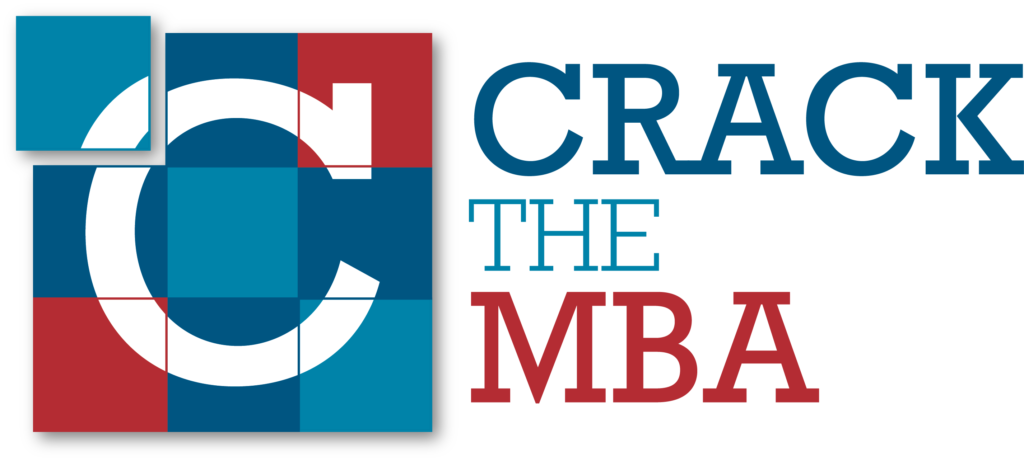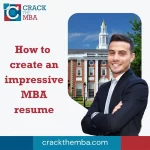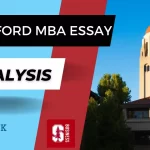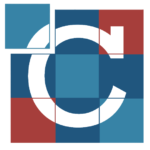Interviewing Shiv Ganesh S – MBA Candidate at Chicago Booth, Class of 21
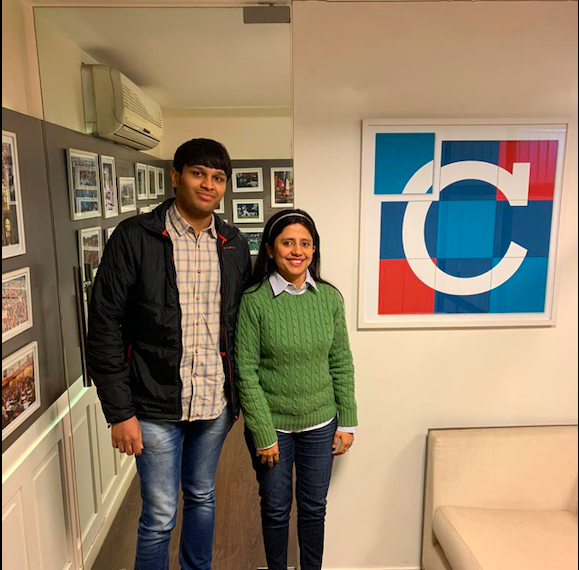
We recently caught up with Shiv Ganesh S, an MBA candidate at Chicago Booth School of Business, Class of 21, and a former client of Crack The MBA. Shiv discusses his journey at Chicago Booth, his internship experience at BCG Gamma, Booth Analytics classes and much more with us.
Shiv has previously worked as a Senior Data Scientist at OYO, as well as a Research Engineer at Xerox. His academic background includes a masters degree in Engineering from the Indian Institute of Science, as well as bachelors degree in Engineering from the College of Engineering in Guindy, Chennai.
How has your academic journey at Chicago Booth been so far?
The things that I’ve wanted from Booth are the things that I’ve been getting from there so far. Booth does not have any restrictions on the courses you take. The school touts flexible curriculum as an advantage, and for a reason. Right from Day 1, I started taking Advanced Analytics course. For getting a concentration in Business Analytics, which also gives international candidates a STEM OPT i.e. eligible for a 24-month extension, one needs to take six subjects. I took eight Business Analytics subjects in the first year itself.
The flip-side is I have not done any basic accounting, which is essential for getting an MBA degree. There are three categories of courses that are required to graduate: Accounting, Economics, and Statistics. You need to do at least one course from these three categories and then you’re done. Even within Accounting, you have 6 subjects under that, so you can take any of those to fulfill the requirements to graduate and obtain your MBA degree.
Can you share your journey of LEAD, the only required course, at Chicago Booth?
My experience with LEAD, which stands for Leadership Effectiveness and Development, was transformative. It set the pace for bonding with people. The program office split us into cohorts of 60-70 students, and within each cohort, there are squads of 7-8 students. I was in the Nobel’s Cohort. These cohorts and squads are applicable only during the LEAD course.
There were around six modules and we completed all these modules together. We spent half a day doing those modules every week. Each of those modules entailed working within our squads and cohorts. The most important part was that LEAD started with this leadership orientation retreat and we went to Wisconsin, where we camped for two days. That was like networking on steroids! The program office planned it so meticulously.
For example, in the morning during breakfast, each participant was assigned to a table where we had an opportunity to talk to others in the same table and our groups were changed during different parts of the day. As a result of meeting new groups of people two days straight, by the end, I knew everyone there. That really helped in breaking the ice. LEAD starts before classes begin in September and goes on for six weeks.
When did the internship recruiting process begin for you? And can you provide us a flavor of how students engage with firms?
Right from the second week of October companies start coming to the campus for an information session. The basic pattern is for students to talk to firm representatives, obtain their business cards, send them thank you mails and this officially kicks off the process for internships. The interview calls are fairly competitive. The general rule of thumb, as I’ve heard it, is that consulting firms need two consultants to vouch for you. I guess that is still better than Finance where you probably need a dozen people to recommend you! As an international student, if you exclude finance and consultancy as recruiting options, you’ll pretty much be left conducting the job search on your own outside the structure of the formal on-campus recruiting process.
What was the internship recruiting process like?
This was the second batch from Booth that BCG Gamma recruited from, which was like a formal structured summer internship recruitment. We had one alumna from BCG Gamma, whom I got in touch with immediately in September. She was also the co-chair of the Booth Analytics club, and I learnt she was from BCG Gamma. So, then onwards I remained in touch with her regularly, asking her about the entire process. That gave me clarity regarding where I wanted to go.
BCG Gamma has a very streamlined interview process and it is quite different from your regular BCG interviews where you rely on existing students and networking. For Gamma, you drop your resume and you get a call within a week, based on your resume.
It was a long interview process. I dropped my resume in the first week of December and I received a call within the second week after that. But then I got my offer on Feb 23rd, with three rounds of interviews in between. The first round was an online round, the second round was a web conferencing round and for the third one, I had to fly out to L.A. and meet the partners, who asked me about machine learning and technical principles.
At the time that I was made the offer, I was given two options – Boston and L.A. Since I have always been charmed by Boston, I chose to go to Boston.
Can you tell us a little bit about your intern class at BCG Gamma?
I was the only guy from Booth to get into BCG Gamma, and I was the only MBA candidate in the summer intern class with me at BCG Gamma. They differentiated me in the sense that I was positioned as a Senior Data Science Consultant while others were Data Science Consultants.
The years of experience that I had definitely helped. The interns with M.S. backgrounds were 22-23 years old, and I had more experience. The interviews were proper data science rigorous interviews. I had three rounds and all the rounds had cases. These were not the case studies you would typically prepare for your McKinsey or BCG strategy, but rather machine learning analytics case. It was an out-and-out technical case study, which I was able to solve for, because I’d been solving such problems for 3-4 years during my past work life. I think candidates from an MBA background, without adequate Statistics background, would struggle with such case studies.
Can you give our readers a sense for what such a case study looks like?
Sure. As an example, you could be trying to reduce churn for a company. You have previous data on who churned out and who did not, their behaviour. You’ll have to build a system which predicts who will churn in the future, and then you can proactively give out discounts to retain such customers identified by the system before they even churn. The only problem is typically if your company has a 10% churn rate, then your past data would have 90% consumers who would not have churned and 10% who would’ve churned. We call this the ‘Unbalanced Dataset Problem’.
If we build a learning algorithm on top of this, even if the algorithm predicts that no one will churn, it will be correct 90% of the time, because 90% of the labels are zero. So typically on the first cut, if you apply any statistical learning algorithm, it’ll say that none of them will churn and it’ll be 90% accurate.
So you need to amend this algorithm to make it understand that these ones are more critical. How do you do that? These were the kind of questions that I was asked, and it was probably the reason why there was barely any representation from MBA schools apart from me.
How was your internship experience like?
My internship experience was insightful and offered me meaningful lessons that will last a lifetime. It gave me my first opportunity to immerse myself into the American work culture. I gained an opportunity to work with BCG Gamma in Boston, a city I absolutely loved. When I was working at Gamma, my midterm review was really extraordinary. However, even at that time, I realized that I was looking for something else. This experience helped me understand that while I enjoyed the product development experience, I missed the day-to-day execution or the operation side of the business, which I was used to at OYO, so I wanted to go in-house. That way I would not just be building products, but I would actually be working on the execution, more like what I did at OYO. I started reaching out to people to apply elsewhere. My networking started during my midterm review.
How was the Booth Analytics Club as a resource?
Booth Analytics Club has been growing rapidly. Analytics has become a rage in the last couple of years, so every year they are improving. They are organizing workshops, which are very useful. For example, they are organizing classes on Excel, R, Python, etc. But the statistical perspective, the math behind these things is technically available through the classes.
Can you share with our readers the Analytics classes that you found most useful?
Booth has some of the best classes in this regard. In the first quarter, I took Applied Regression Analysis and I was able to convert the Gamma interview because of so many things I was able to learn from the classes, and this is coming from a person who’s been doing it for the last 3-4 years.
For me to have a single stop destination where I get everything in a structured manner was amazing. Booth academics are the best, if you want to pursue Business Analytics. Some of the courses that I really enjoyed were Revenue Management, Data Science for Marketing Decision Making, Digital and Algorithmic Marketing, and Pricing Strategies among others. All these courses had one thing in common. They combined business intuition with rigorous mathematical models and aimed to solve some of the most pressing business problems that are faced by a firm from targeted marketing to dynamic pricing.
How have Indian students at Booth been doing?
All the Indians I know have done really well. Many people go into Consulting with the likes of McKinsey or Finance with the likes of J.P Morgan. People generally pick one of these two tracks as these firms offer visas to international students. There were some other people who didn’t choose either of these tracks and targeted tech firms such as Amazon or Google, and with success. Though Amazon doesn’t come to campus, they have a very structured off-campus process.
